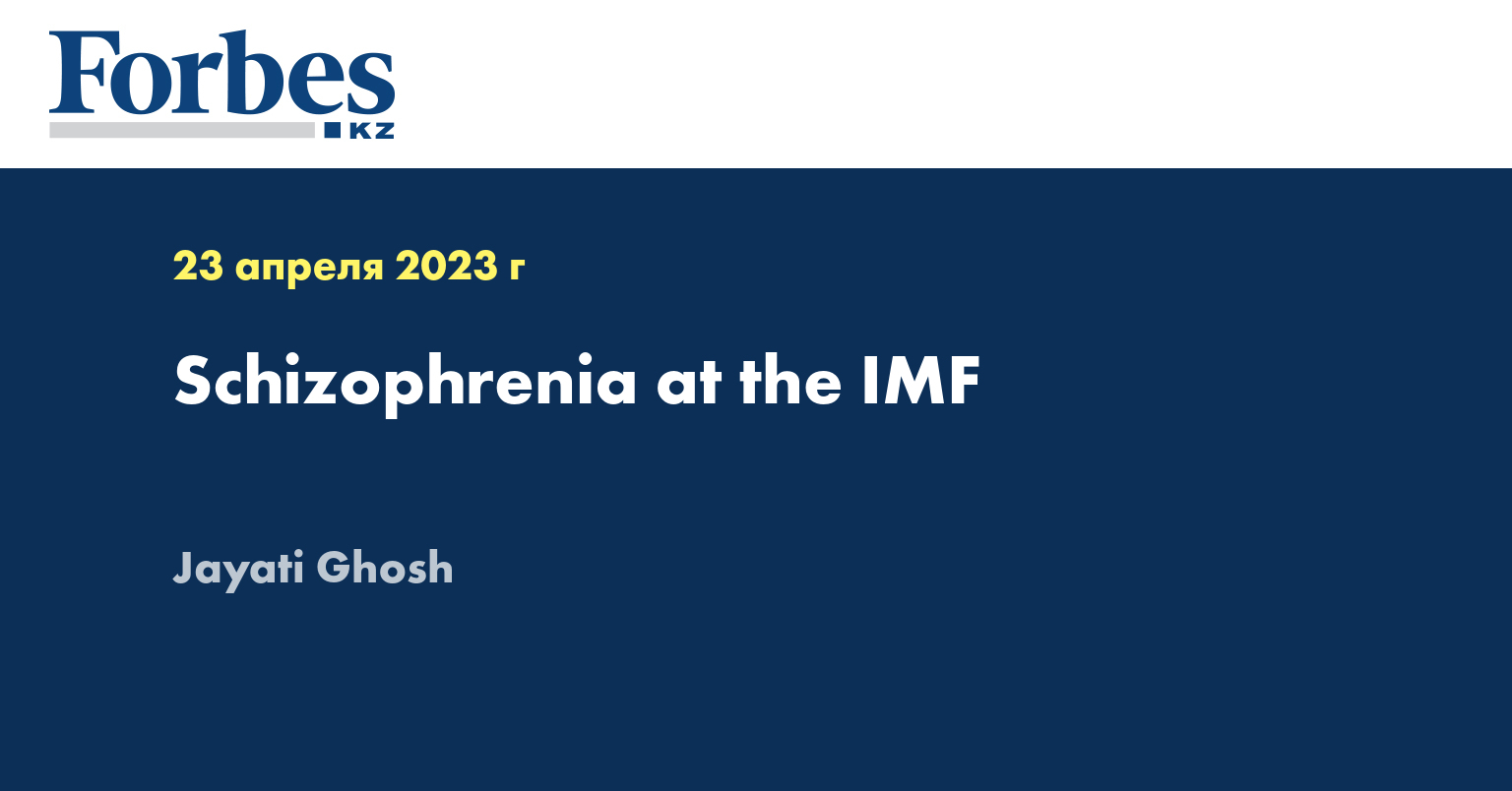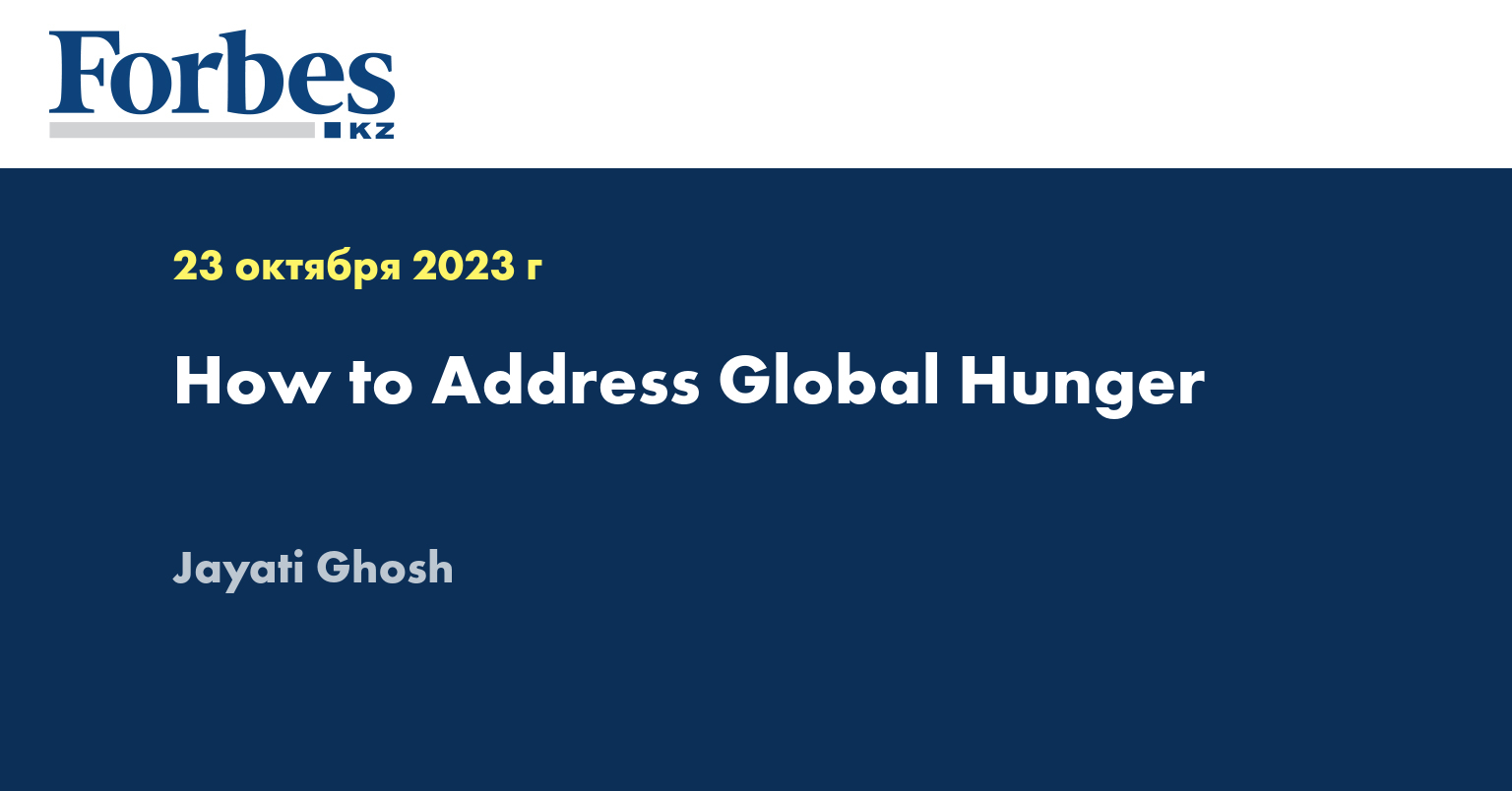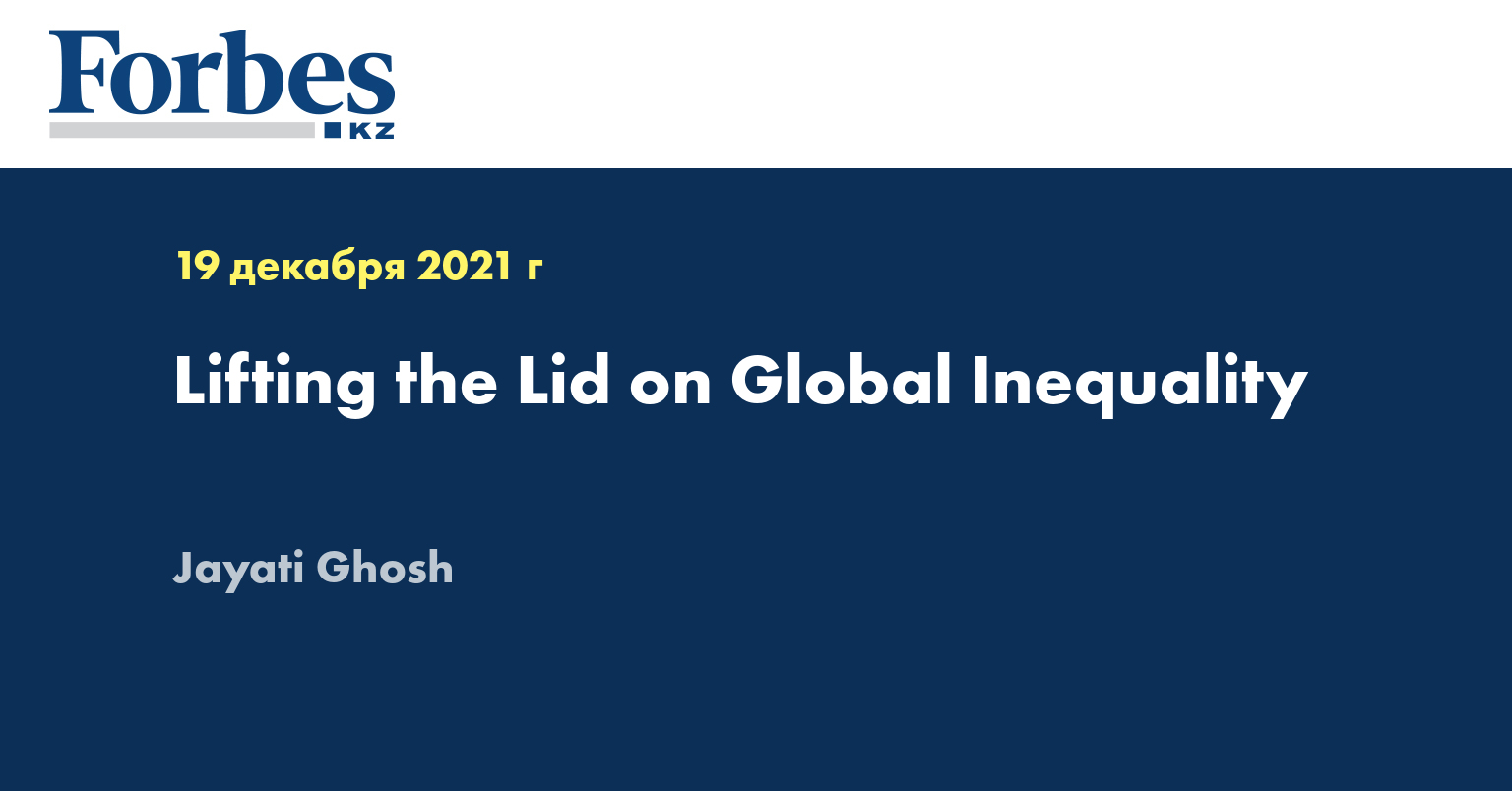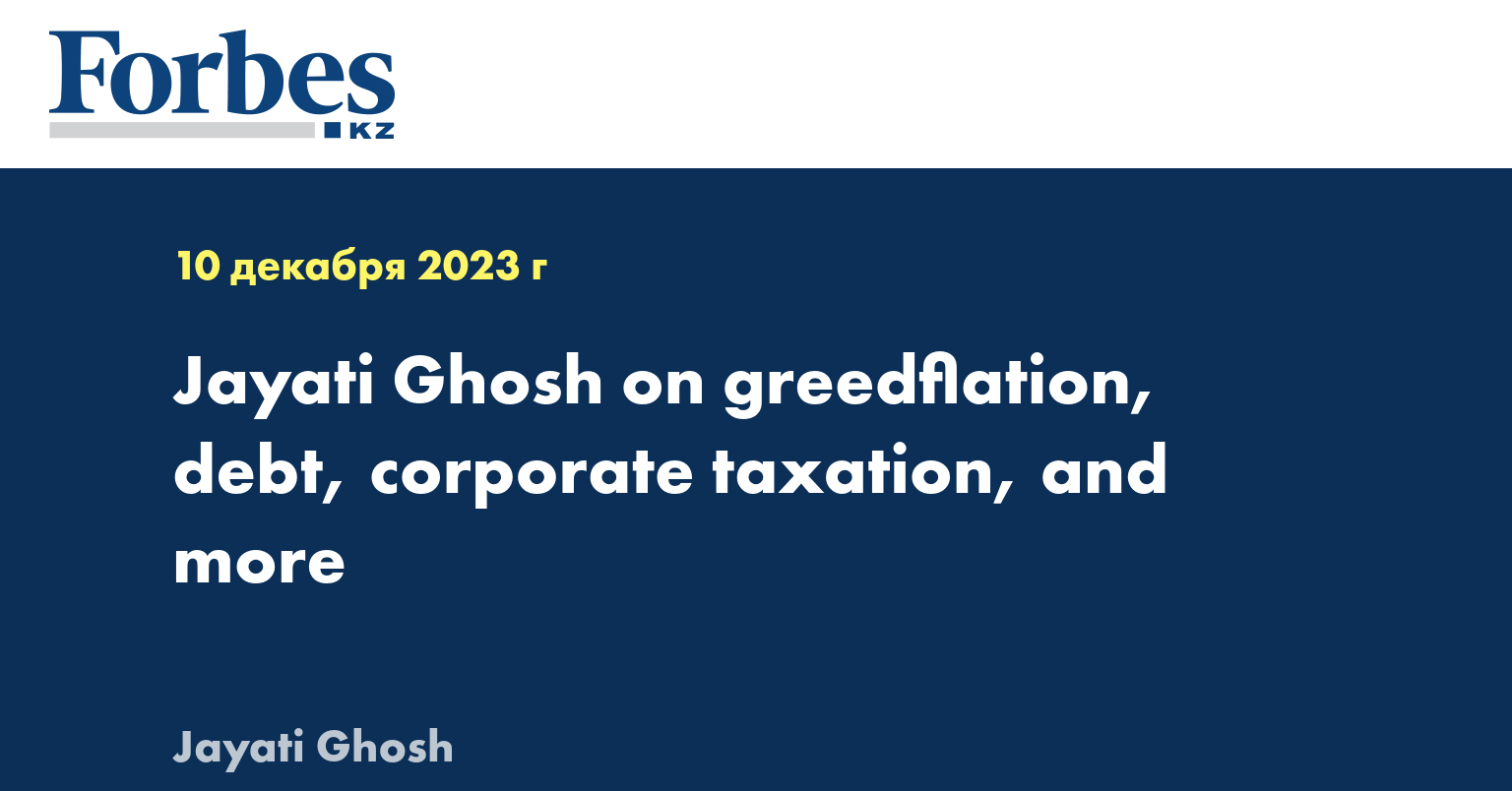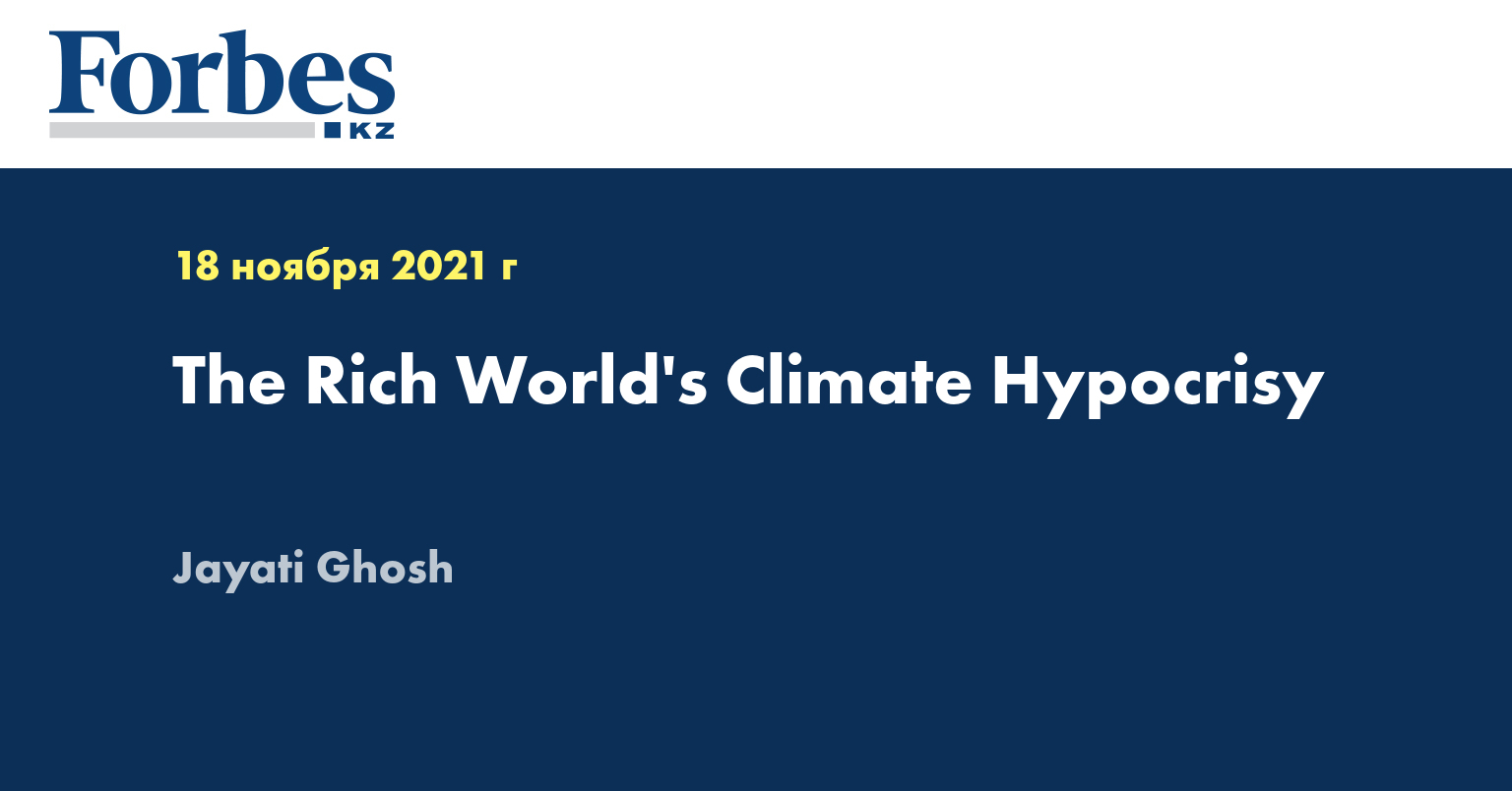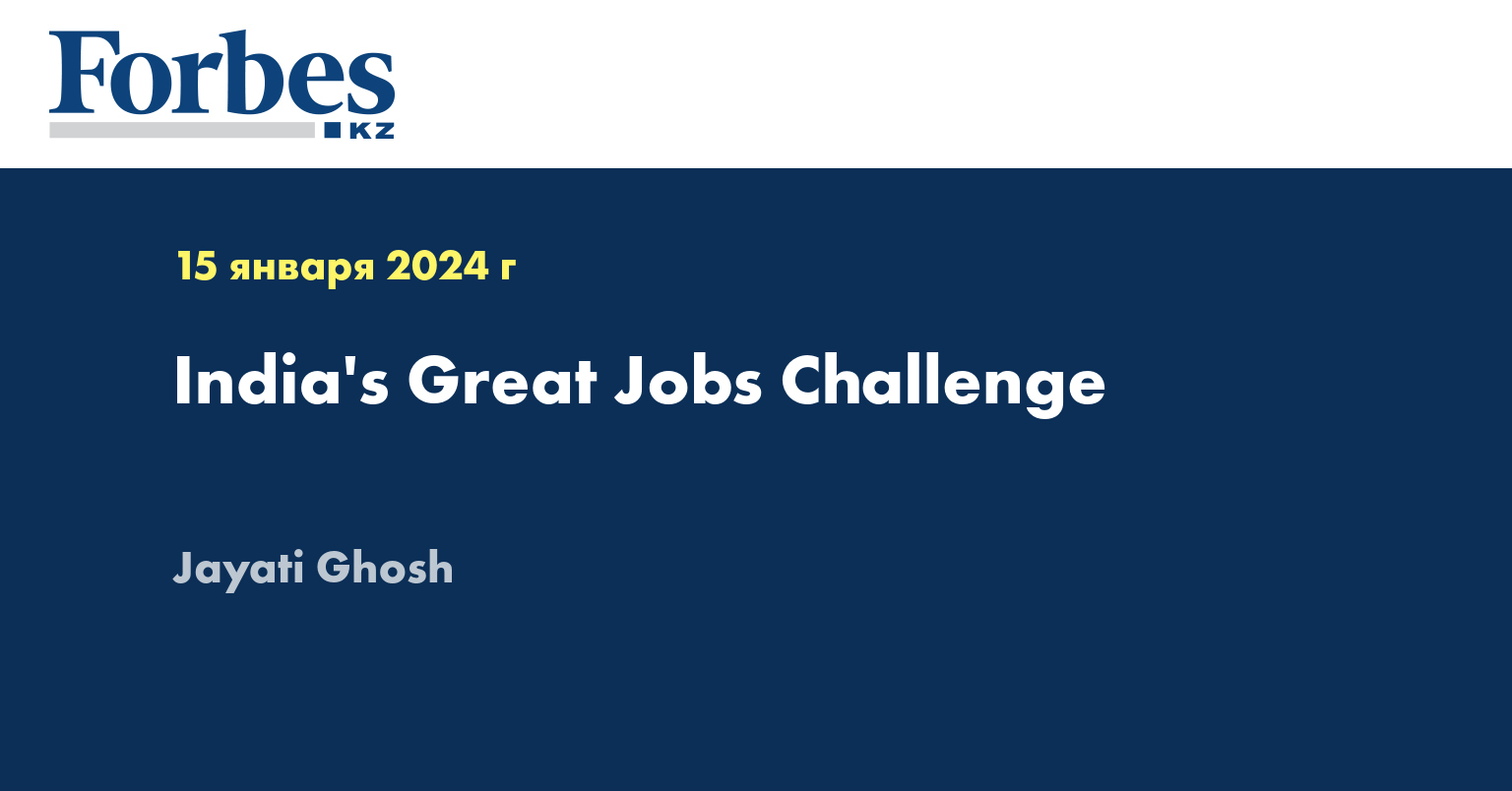NEW DELHI – This was supposed to be the Asian century, with the ascent of China being only one – albeit a major – part of the story
25 июля 2021
5 мин.
6591
NEW DELHI – Once again, emerging markets are on the capital-flows roller coaster – one no less dizzying for being so familiar. And once again, the highs and lows of financial-market swings in these economies are mostly generated by external forces, not national policies. But the possibility that even the smallest domestic mistake could send them into a tailspin still looms large
17 июня 2021
5 мин.
5458
NEW DELHI – The Biden administration’s decision to stop opposing a proposed COVID-19 waiver of certain intellectual-property rights under World Trade Organization rules is a welcome move
11 мая 2021
5 мин.
6776
NEW DELHI – One of the most significant socioeconomic changes accelerated by COVID-19 must surely be the rise of digital labor platforms. Of course, platform-based employment had already been growing exponentially before the pandemic. But the combination of lockdowns and stay-at-home orders, and the consequent greater reliance on remote work, has dramatically increased both their spread and intensity of use
15 апреля 2021
5 мин.
7668
NEW YORK – The United States expects to “celebrate independence” from COVID-19 by Independence Day (July 4), when vaccines will have been made available to all adults.
26 марта 2021
6 мин.
8447
NEW DELHI – On March 10, the credit-rating agency Moody’s placed Ethiopia on review for a downgrade. The problem isn’t violence and repression in Ethiopia’s embattled Tigray region. Rather, Moody’s has concluded that the Ethiopian government’s commitment to engage with private creditors, as part of the G20 Common Framework for Debt Treatments beyond the Debt Service Suspension Initiative, raises the risk that those creditors will incur losses. For that, the country apparently must be punished
18 марта 2021
5 мин.
6818
NEW DELHI – The European Union has changed its economic policy for the better by agreeing on a €1.8 trillion ($2.2 trillion) post-pandemic stimulus plan to be financed directly through the EU budget. In particular, more than half of the package – which comprises the EU’s long-term budget and the €750 billion Next Generation EU recovery fund – is earmarked for forward-looking public spending
17 февраля 2021
5 мин.
7058
It has taken far too long, but it seems that the International Monetary Fund has finally internalized some hard truths about sovereign-debt reduction
23 апреля 2023
4 мин.
86888
Among the multiple crises that have erupted around the world, the avoidable tragedy of growing hunger receives only fleeting mention
23 октября 2023
5 мин.
79212
Globally, the richest 10% of the population is responsible for more than half of all CO2 emissions
19 декабря 2021
5 мин.
76728
While inflation in the advanced economies has subsided, this is largely because the forces that fueled the latest bout of inflation – spikes in global food and fuel prices, as well as supply-chain disruptions – have subsided
10 декабря 2023
12 мин.
74103
Despite the well-known problems with using gross domestic product as an indicator of human development, policymakers around the world still seem to be obsessed with it
09 июля 2022
5 мин.
69325
Many people around the world already consider the United Nations Climate Change Conference (COP26) in Glasgow a disappointment
18 ноября 2021
5 мин.
67011
The World Economic Forum’s annual meeting in Davos, Switzerland, has always been more than a little problematic
22 января 2023
4 мин.
56975
Any optimism about India’s economic prospects must be tempered by its inability to address two related challenges
15 января 2024
5 мин.
55020
Carbon pricing is all the rage these days, at least in the developed world
23 марта 2023
6 мин.
46696
The recent Paris Summit for a New Global Financing Pact was touted by its organizers, including French President Emmanuel Macron, as a groundbreaking initiative to forge a «new contract» between the Global North and South that would address climate change and foster sustainable development
15 июля 2023
6 мин.
46478
Kim Stanley Robinson’s prescient science-fiction novel The Ministry for the Future begins with a stark description of a major heat wave in a northern Indian city that kills millions of people
21 мая 2022
5 мин.
37626
It is difficult to see any winners in the ongoing war caused by Russia’s irrational and devastating invasion of Ukraine
12 марта 2022
5 мин.
41876
The United Nations Climate Change Conference (COP28) in Dubai is an opportunity to reflect on what these large, costly, and carbon-intensive international summits aim to achieve
14 декабря 2023
5 мин.
43711
Confounding the grim prediction made by the British economist Thomas Malthus in 1798, the world currently produces more than enough food for a population that has increased almost tenfold since then
18 марта 2019
5 мин.
11316
After four decades of fostering integration through trade and finance, the global economy has begun a painful process of fragmentation
25 декабря 2022
5 мин.
32945
NEW DELHI – For some time now, multinational companies (MNCs) have been gaming the rules of the global economy to minimize their tax liability – or even eliminate it altogether. And for some time now, the Independent Commission for the Reform of International Corporate Taxation (ICRICT) has argued for the unitary taxation of MNCs. Fortunately, there have been some encouraging recent signs that the idea of a unitary tax is gaining traction
17 апреля 2019
5 мин.
12526
The World Economic Forum’s annual meeting in Davos, Switzerland, has always been more than a little problematic
22 января 2023
4 мин.
56975
The recent Paris Summit for a New Global Financing Pact was touted by its organizers, including French President Emmanuel Macron, as a groundbreaking initiative to forge a «new contract» between the Global North and South that would address climate change and foster sustainable development
15 июля 2023
6 мин.
46478
Over the past two decades, Indian multi-billionaire Gautam Adani’s close ties to Prime Minister Narendra Modi have helped the Gujarati businessman become Asia’s wealthiest person
26 февраля 2023
6 мин.
38803
Last year was a watershed for gender relations. The #MeToo movement rocked establishments around the world, forcing even powerful men to face public scrutiny for their behavior toward women
14 января 2019
5 мин.
10951
У автора нет статей, опубликованных в журнале Forbes Kazakhstan
Загрузка...









